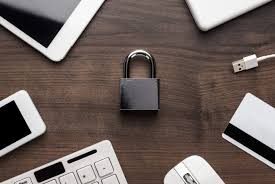This article covers all you need to know about protecting your online privacy. Being so linked online comes with some severe security issues, as we do so much of our life online – from banking and emails to health data and passport information. You’re not the only one who feels this way. The issue of online privacy is crucial.
You may, however, take steps to better manage and protect your personal and financial information when browsing your favorite websites, online communities, news, and entertainment platforms.
Here Are Proven Methods For Protecting And Enhancing Your Online Privacy.
1. Enable authentication for both your primary and secondary accounts.
Authentication using two factors
Some devices and accounts allow you to use 2-step verification for added security. This kind of authentication is secure because it involves both something you know (a password) and something you receive (a multi-digit number sent to your phone through email or SMS).
2. Invest in good antivirus software.
Antivirus software is a data security application that protects a computer system from viruses, spyware, malware, assaults, spam attacks, and other online cyber threats. Viruses will be free to attack and infect hard drives, removable disks, reproduce themselves several times, and cause extensive damage beyond repair if they are not installed on a computer, forcing you to purchase a new machine. Antivirus software can defend against viruses and their propagation, protect detachable devices from viruses, defend against hackers and invasive data collection firms, and much more. The finest lightweight antivirus for Windows 10 may be found here.
3. Make sure you have the most recent security updates installed.
It’s critical to keep your apps up to date, especially if they store personal or financial information. You can verify that you’re using the most secure version of an app by keeping it up to date, which includes the latest bug fixes and security updates.
4. Get rid of some of your phone’s apps. Instead, use a browser.
The apps on your phone tend to send a lot of data back to their creators. Because of the various types of data they can access via your phone, they can learn a lot about you. Because they are hosted by the company, most apps are safer to use on the web than on the phone. Because the information you upload is not saved on your device, it is unlikely to be hacked, and the quantity of information that can be taken from your phone is limited. Instead of installing apps on your smartphone, you can use mobile browsers.
5. For your accounts, use strong passwords or passphrases.
People frequently choose weak passwords that are all too easy to guess. Make your password as difficult to guess as possible while creating it. Make an effort to use a variety of capital and lowercase letters, numbers, and symbols. Once you’ve created a strong password, make sure you keep it safe. Use different passwords for different accounts and logins. Having a lot of different, complex passwords can make it difficult to remember them all. That’s why you should use a password manager to store and access your difficult-to-remember passwords on various devices.
6. For privacy, use end-to-end encrypted messaging programs.
End-to-end encryption implies that only you and the recipient can read the communication you transmit, and that no one else, even the firm (in most situations), can read it. If you want the contents of your communications to be secure, you should use an app with end-to-end encryption, such as Telegram or Signal.
7. Use incognito or private browsing mode.
Most modern browsers provide a “incognito” or “private” browsing mode. This disables your browser’s History feature, which prevents your browsing history from being saved. It also disables your browser from caching previously visited web pages. This makes it an excellent choice for keeping your online activities hidden from people who have physical access to your computer. This functionality does not guarantee that your data will not be stolen. Your IP address, location, and Internet Service Provider (ISP) are still collected. To help you protect it, you’ll need a VPN; more on that later.
8. Make use of a virtual private network (VPN) (VPN)
VPN services have grown in popularity in recent years. It has a significant impact on your online security. It masks your IP address and encrypts your network traffic, ensuring that no one can see what you’re doing. It also allows you to access any content regardless of your location. Find out which VPNs are the best and which VPNs are free to use on your mobile device.
9. Use a different search engine to find what you’re looking for.
Traditional search engines such as Bing, Yahoo, and Google make it easier and more accurate to search the internet; nevertheless, the websites and webpages you visit share your information with these search engines. Websites may have access to your IP address, unique search query, location, and other information. This is why, rather of using search engines geared toward adverts and revenues, you should utilize search engines geared for your online privacy and security. DuckduckGo is a great search engine for people who want to regain control of their digital footprint. Other browsers include Brave, Tor, Mozilla Firefox, and others.
Conclusion
While there is no way to completely guarantee our online security or privacy, we can greatly improve our online security and digital privacy by actively following and committing to the safety principles, tips, and advice in this guide.
